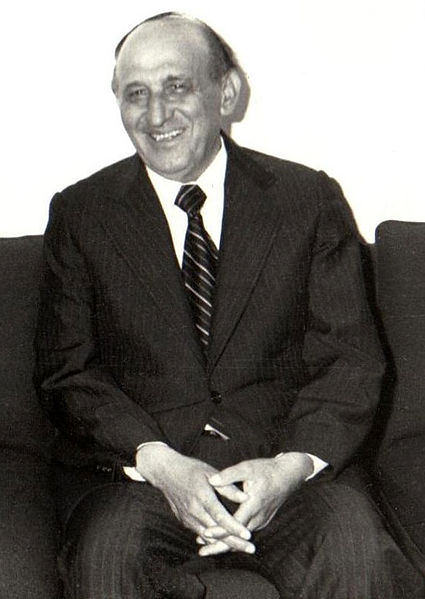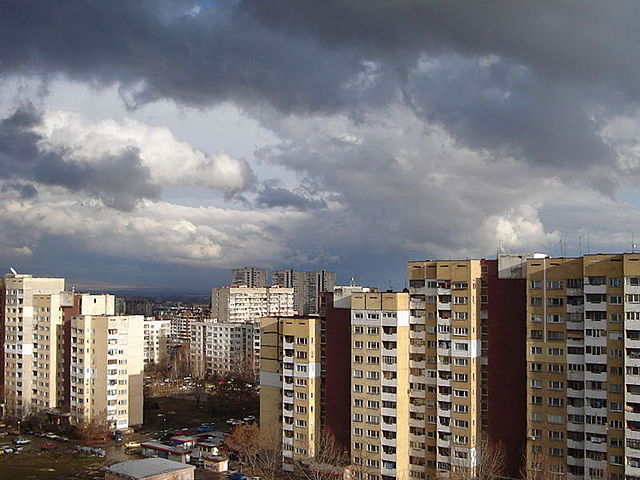Bulgarian Communist Party
The Bulgarian Communist Party was the founding and ruling party of the People's Republic of Bulgaria from 1946 until 1989, when the country ceased to be a socialist satellite state of the Soviet Union. The party had dominated the Fatherland Front, a coalition that took power in 1944, late in World War II, after it led a coup against Bulgaria's tsarist regime in conjunction with the Red Army's crossing the border. It controlled its armed forces, the Bulgarian People's Army.
Membership card to the BCP
Sculptures of the communist Bulgarian leaders in the Museum of Socialist Art in Sofia: Vasil Kolarov, Dimitar Blagoev, Georgi Dimitrov and Todor Zhivkov.
People's Republic of Bulgaria
The People's Republic of Bulgaria was the official name of Bulgaria when it was a socialist republic from 1946 to 1990, ruled by the Bulgarian Communist Party (BCP) together with its coalition partner, the Bulgarian Agrarian People's Union. Bulgaria was closely allied and one of the most loyal satellite states of the Soviet Union during the Cold War, sometimes being called the 16th Soviet Republic rather than an independent country. Bulgaria was also part of Comecon as well as a member of the Warsaw Pact. The Bulgarian resistance movement during World War II deposed the Kingdom of Bulgaria administration in the Bulgarian coup d'état of 1944 which ended the country's alliance with the Axis powers and led to the People's Republic in 1946.
1961 USSR stamp marking the 15th anniversary of the People's Republic of Bulgaria
Georgi Dimitrov, leader of the Bulgarian Communist Party from 1946 to 1949
Todor Zhivkov
Pre-fabricated apartment blocks in Mladost, Sofia






